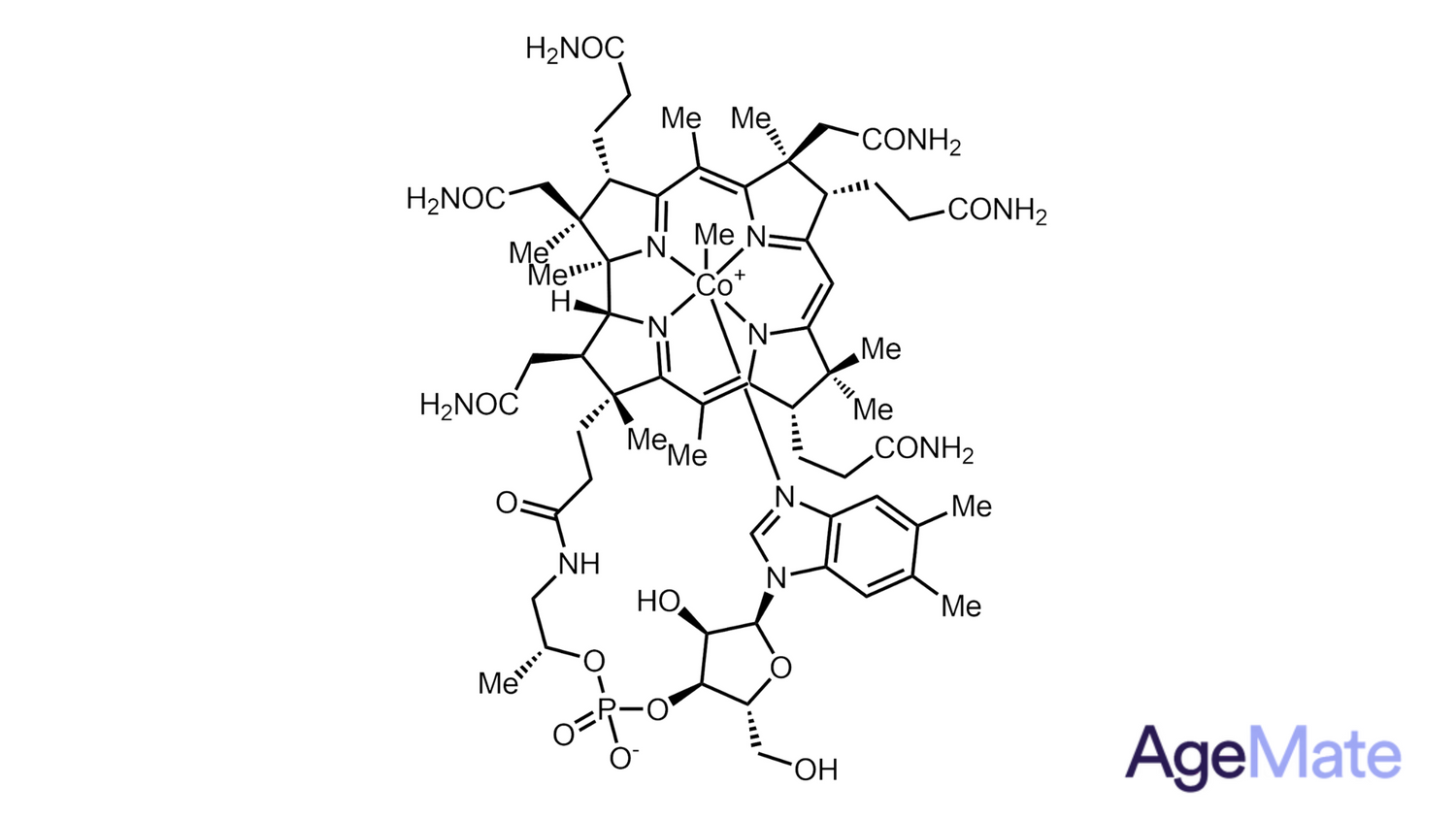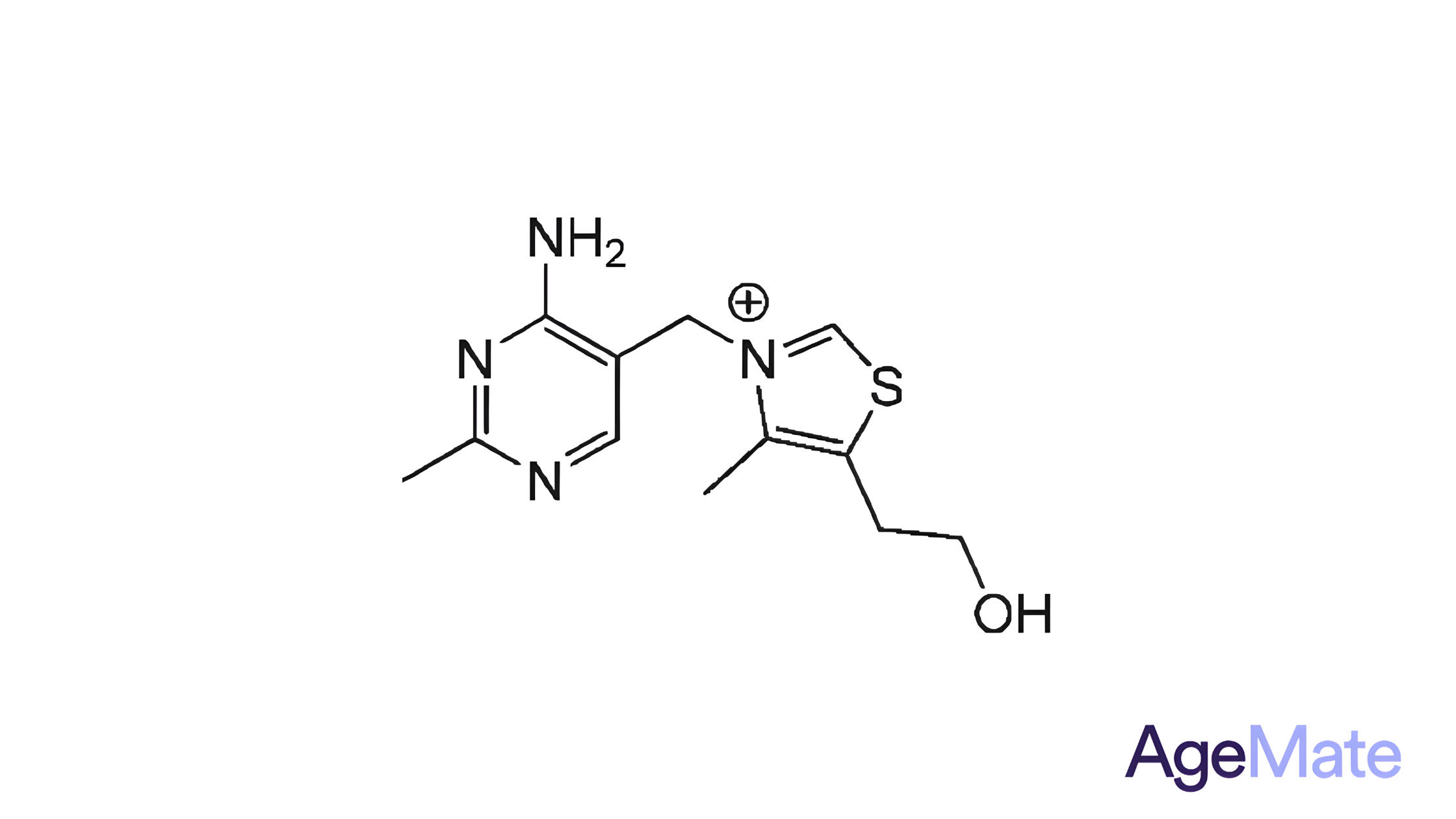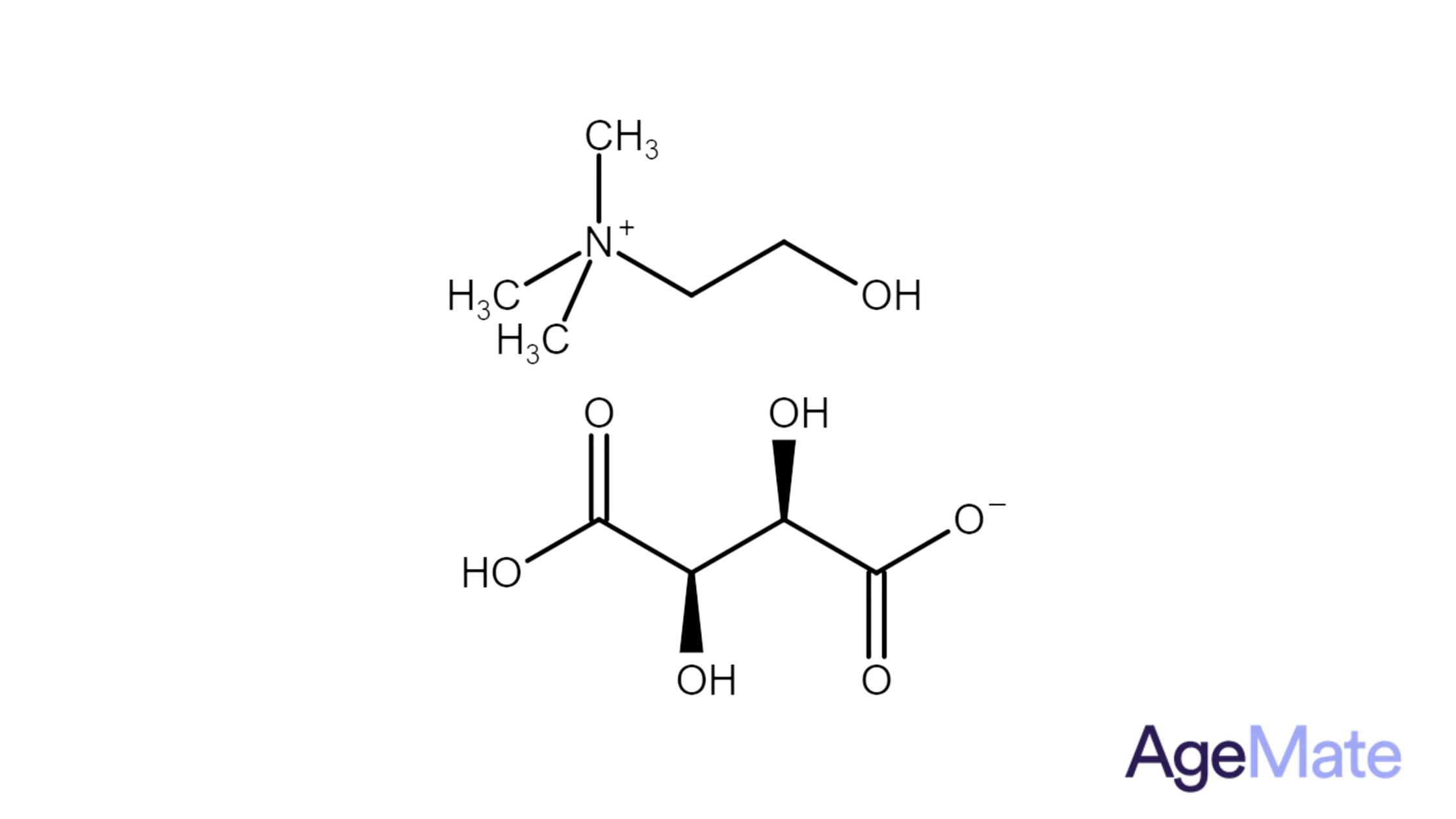Summary
|
|
What is Vitamin B12 as Methylcobalamin?
Methylcobalamin is a naturally occurring form of Vitamin B12 readily absorbed and utilised by the body.
Unlike other forms of Vitamin B12, such as cyanocobalamin, methylcobalamin does not require conversion to be biologically active, making it an efficient choice for supplementation.
It is crucial for neurological function, aiding in maintaining the myelin sheath that protects nerve cells and supports signal transmission.
Vitamin B12 as Methylcobalamin Impact on Aging and Longevity
Vitamin B12 deficiency is associated with neurological impairments, particularly in older adults. The deficiency can lead to issues such as memory loss, decreased cognitive function, and increased risk of neurodegenerative diseases. Supplementation with Vitamin B12, including methylcobalamin, may help improve neurological function and prevent cognitive decline (R).
Methylcobalamin has been studied for its potential to promote nerve regeneration and functional recovery in nerve injury models. For example, in a rat sciatic nerve injury model, continuous administration of high doses of methylcobalamin showed improvements in nerve regeneration and functional recovery (R).
In cellular models, methylcobalamin has been shown to protect against cytotoxicity induced by amyloid-beta, a peptide associated with Alzheimer's disease. This protective effect suggests a potential role for methylcobalamin in neuroprotection and the prevention of Alzheimer's disease (R).
Vitamin B12 plays a crucial role in one-carbon metabolism, which impacts DNA synthesis, repair, and methylation processes. Adequate levels of methylcobalamin can help maintain healthy homocysteine levels, potentially reducing the risk of cardiovascular diseases and supporting metabolic health (R).





